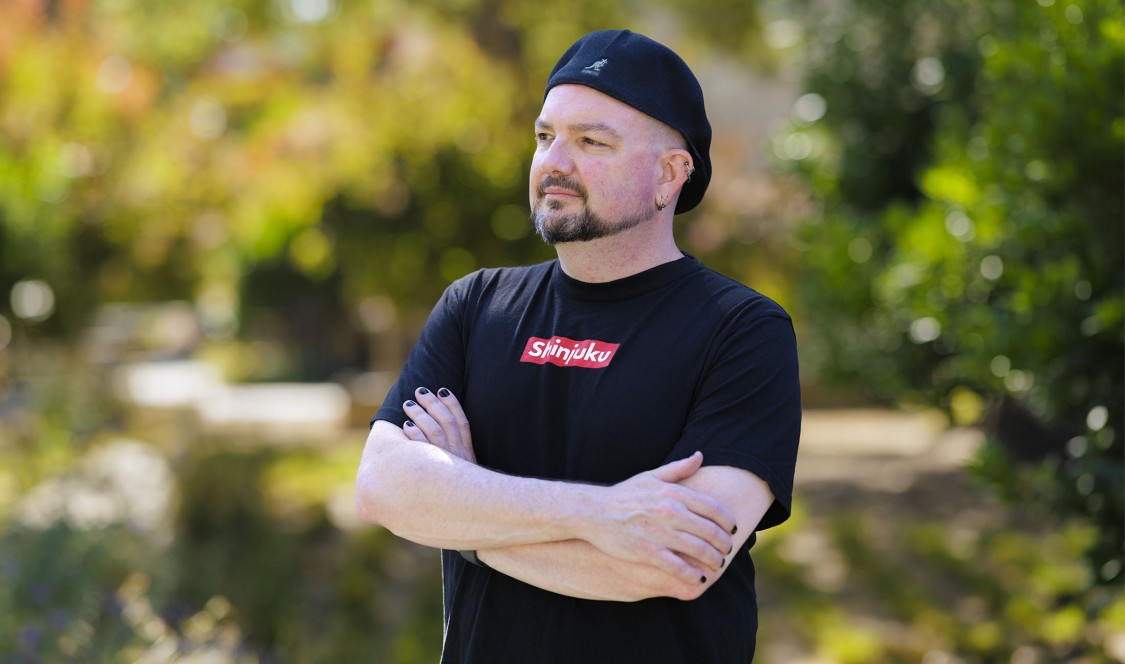A prolific researcher with more than 100 publications to his name, Professor Sam Nelson is well-regarded worldwide for his scholarship in mathematics, offering a novel approach to knot theory, expertise in algebraic topology, and innovative solutions to previously unsolved problems.
His recent promotion to managing editor of the premier international journal in his field, the Journal of Knot Theory and Its Ramifications, speaks to his significant contributions to overall mathematical knowledge. The peer-reviewed interdisciplinary journal is “a forum for new developments in knot theory, particularly developments that create connections between knot theory and other aspects of mathematics and natural science.” (Knot theory is a branch of pure mathematics with important applications in various scientific fields, including physics, molecular biology, chemistry, and cryptography.)
Nelson, who is the George C. S. Benson Professor of Public Affairs and Mathematics, is equally esteemed by his CMC colleagues for his emphasis on teaching and offering students the opportunity to collaborate on his research. CMC has acknowledged Nelson’s contributions, bestowing him with the Faculty Career Mentor Recognition in spring 2021, and the 2019-20 Faculty Scholarship award. In addition, Nelson has earned two collaboration grants from the Simons Foundation.
As a teacher and researcher in mathematics at a liberal arts college, Nelson is ready to define terms such as “non-associative algebra” and to answer the question, “Why do we need to know this?”
While Nelson successfully summarizes answers to these questions here, he adds that he is always interested in discovering new ways to think. As an example, Nelson cites the Pythagorean theorem, aka the “right triangle theorem.”
“I know of a couple of ways to prove it, but there’s actually a book that has 500 different proofs, all of which are really different. You might say, ‘Why do we keep reproving this theorem?’ Each proof is just an explanation. And so having different explanations of the same thing can show you different ways of thinking about why this thing is true. We all have different backgrounds and we come to things in different ways.”
This approach also applies to his research. Nelson estimates that half of his publications have been co-authored by students, a collaborative opportunity he characterizes as “peer-to-peer.”
“There are always discussions about the problem we’d like to solve, or the thing we’d like to construct, and how it works,” he said. “Then we go through it together. For a first project, I always try to do something that I’m pretty confident I know how it’s going to turn out, but I haven’t carried out the details yet. For a second project, I’m willing to be more speculative. And I’ve had several students with whom I’ve written multiple papers.”
Nelson involves students with research opportunities because he himself benefited from these opportunities as an undergraduate at the University of Wyoming. He spent three of his summers conducting research in mathematics as part of the McNair Scholars program, which promotes “strong research and academic skills.”
From the University of Wyoming, Nelson headed to Louisiana State University, where he earned his M.S. and Ph.D. in mathematics. He then held teaching posts at Whittier College, UC Riverside, and Pomona College, before he landed at CMC in 2008.
Growing up in Western Nebraska and Eastern Wyoming, Nelson spent his formative years gleaning an interest in the sciences by watching PBS. “Carl Sagan’s Cosmos series was really, really important and informed my way of thinking,” he recalled.
Now Nelson, who is also an editorial board member of the Communications of the Korean Mathematical Society, is on the international conference circuit, traveling overseas to attend, and often organize, conferences.
In spring 2026, Nelson will present at the annual Mathematical Society of Japan conference at the Tokyo University of Science, where he is also co-organizing “Knot Theory, Geometric Lie Group Theory and Its Application,” a satellite conference the following week.
Nelson plans to push beyond his comfort level and present his talk in Japanese. His conversational Japanese, he said, is “good enough,” thanks to years of communicating with colleagues who speak the language as well as time spent as a dance club DJ in Tokyo, among other cities.
Nelson developed his DJ skills as a graduate student at Louisiana State University, eventually making a connection to his academic work when he began noticing “that certain structures in my knot theory research could be interpreted as note sequences. I tried playing them and now use these as starting points for music composition.”
Take a listen (knowledge of knot theory not required).

